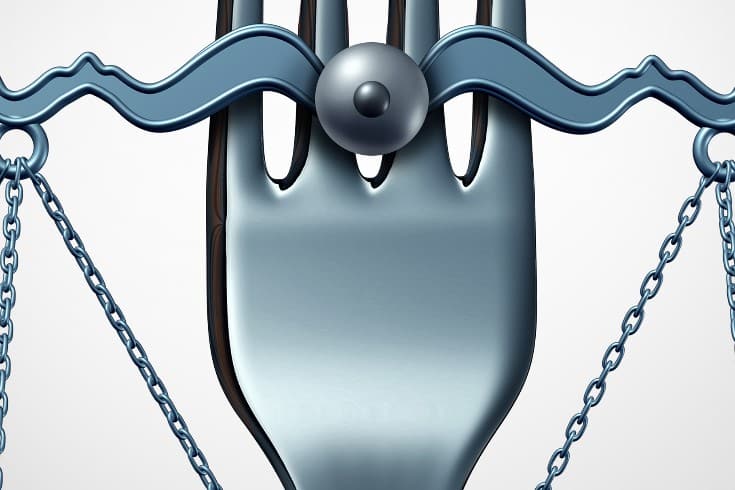What are the Cases Where Damages for Defamation Become High Due to the Maliciousness of the Offending Act?

When defamation is recognized, the victim is granted the right to claim damages against the perpetrator, with the main focus being on consolation money.
Consolation money is defined as “compensation for mental damage, not material damage, in other words, recompense for the pain inflicted on the inner self” (Supreme Court judgment, February 22, 1994 (Gregorian calendar year)). However, it is difficult to objectively and quantitatively grasp the degree of this distress, and the court calculates the consolation money by comparing and weighing various elements.
Regarding these “various elements”, the book “Calculation of Consolation Money for Defamation” (Gakuyo Shobo: Moto Nishiguchi, Shoichi Kogano, Noriyuki Sanada) proposes the following formula:
Median of victim attributes ± Strength of propagation and influence ± Maliciousness of the perpetrator’s actions
All defamation is a crime and is not permissible, but there are some particularly malicious and persistent defamations. Although the consolation money for defamation is often modest, how are these malicious actions judged?
Here, we will explain how the “maliciousness of the perpetrator’s actions” is evaluated in court.
https://monolith.law/Japanese reputation/compensation-for-defamation-damages[ja]
https://monolith.law/Japanese reputation/defamation[ja]
Case of Persistent Defamation
The plaintiff, while studying at University A, rented an apartment. Three years after graduating and vacating the apartment, the landlord of the apartment began to: ① send defamatory emails about the plaintiff to the hospital where the plaintiff worked, ② repeatedly upload videos or communities that defamed the plaintiff and damaged his reputation on “○○ Video” and “○○ Community”, ③ disclose the plaintiff’s name, address, and workplace in the posted videos, and upload photos of the plaintiff’s face, thereby infringing on the plaintiff’s privacy, and ④ escalate these actions even after the initiation of this lawsuit and during the settlement negotiations on the settlement date.
Repeated Harassment
It is unclear what kind of interpersonal entanglement existed, as this happened three years after graduation. However, the court found it clear that the defendant’s actions, such as posting allegations that the plaintiff “invited women from dispatch-type sex businesses to his room and engaged in candle play”, “was a fan of Western hardcore pornography and the Lolita category, and received numerous small magazines intended for the sale of uncensored DVDs from vendors”, and “defaulted on eight months’ rent, with two months unpaid”, along with the plaintiff’s personal information such as his name, workplace (Department of Urology at Hospital C), address of his home and his parents’ home, and his face photo, constituted an illegal act that defamed the plaintiff’s reputation and violated his privacy.
Case Where High Compensation Was Recognized
Furthermore,
The plaintiff requested “○○ Video” and “○○ Community” to delete the videos, but even when the deletion was made based on this request, the defendant repeatedly uploaded similar videos, forcing the plaintiff to repeatedly request deletion. When the plaintiff’s representative applied for the defendant’s account to be suspended, the defendant, in retaliation, created as many as 12 communities about the plaintiff, including his face photo, and continued to engage in what can only be described as harassment. Even during the proceedings of this lawsuit and the ongoing negotiations for a settlement, the defendant posted on “○○ Video” statements such as “He was a tenant when he was a student at University A… But this guy was terrible. Yeah. He became a doctor, but he’s a mess. He doesn’t pay his rent, he defaults, he breaks things” along with derogatory and provocative expressions such as “I can’t believe there’s such a dirty doctor” and “A brat who doesn’t pay his rent became a doctor and sued me”. As a result of the defendant’s persistent posts, when the plaintiff’s name is entered and searched on the △△ site, the videos related to the defendant’s posts are displayed at the top.
Tokyo District Court, July 19, 2013 (2013) Judgment
The court ruled that “the damage caused to the plaintiff by the defendant’s defamation and invasion of privacy is serious and significant, especially the persistent posting of the plaintiff’s personal information such as his face photo, name, and address is extremely malicious”, and ordered the defendant to pay 2.5 million yen in compensation for emotional distress, 250,000 yen in attorney’s fees, for a total of 2.75 million yen.
While many cases of damage compensation for defamation tend to limit the compensation amount to around 1 million yen, and particularly in cases of infringement of reputation rights using the Internet, the calculation of damages is often modest, there is a possibility of a stricter judgment against such “persistent” and “extremely malicious” acts.
https://monolith.law/reputation/calculation-method-of-compensation-for-damages[ja]
When Seeking a Preliminary Injunction

There have been cases where the plaintiff claimed that their reputation and privacy rights were violated due to defamation and other actions using email and the internet, damaging their credibility as a hostess. The plaintiff demanded 1 million yen in damages from the defendant based on tort law, and also sought a preliminary injunction based on personality rights. This injunction was to prevent the defendant from transmitting information, including the plaintiff’s personal information, via telecommunication lines, thereby making it accessible to an unspecified number or a large number of people.
Harassment via Email and Persistent Posting on Message Boards
The plaintiff is a woman who used to work as a hostess at a club in Roppongi, known as ‘Club a’, under the pseudonym ‘A’. Since May 2015 (Heisei 27), she has been working as a hostess at a club in Ginza, ‘Club b’. The defendant is a customer of ‘Club a’ who met the plaintiff during her time there and developed feelings for her.
When the plaintiff moved from ‘Club a’ to ‘Club b’, she tried to cut off all contact with the defendant. However, the defendant, who was displeased with this, began to spread false rumors about the plaintiff and frequently sent her threatening emails, such as “kill yourself”, from around May 2015 (Heisei 27).
Furthermore, from November of the same year, the defendant began to post abusive comments on the ‘Club b’ thread of a host club message board, such as “Die, old hag A! I hope you die in a traffic accident tomorrow!”, “A should die! Die quickly! You’re just an old hag who can only work at a cabaret club, so die quickly!”, and “Absolutely do not hire, do not nominate this evil hostess. Information about A, formerly of Club a, now at Ginza Club b, (birthdate: X, age: Y) (Real name: X) is written here, so click and read!!”. The defendant also admitted to using inappropriate language, such as “I’m using this board to corner A and confirm that she quit!”, and “You attacked me because you like me, right? This attack is my retaliation because I felt that A was looking down on me!”. The defendant also posted the plaintiff’s personal information, such as her real name and mobile phone number, on the site without her permission, and even posted her photo, along with defamatory articles suggesting that the plaintiff was involved in criminal activities, such as “This is a photo of the scene of A’s (Real name: X) love and marriage fraud at Ginza Club b!!”.
Eventually, the defendant began to visit ‘Club b’ and started spreading rumors about the plaintiff to other hostesses in the club. The plaintiff, feeling extreme fear due to the defendant’s threatening behavior, invasion of privacy, and defamation, consulted with her attorney about how to handle the situation. She sent a certified mail to the defendant demanding that he stop his actions and warning him that she would not hesitate to take legal action if he continued.
Response to Warnings via Certified Mail
However, the defendant continued to harass and threaten, publicly disclosing the contents of the aforementioned certified mail on the host club bulletin board’s B-store thread. The defendant made unabashedly defamatory remarks such as, “What’s wrong with calling a marriage scammer a scammer! Ichikawa!”, “I’ll never stop wanting you to kill yourself!!”, “If you have time to be confused, kill yourself!”, “What kind of lawyer scams people by making 50,000 yen for three hours of work a day! Die!”, “You’re a marriage scammer, a love scammer, you idiot Ichikawa!!”, “I sincerely want you to die!! Die now, die today, die tomorrow. Die every day!” Furthermore, the defendant impersonated the plaintiff and created a Facebook site, repeatedly posting and publicizing numerous photos of the plaintiff’s face and articles damaging to the plaintiff’s reputation and credibility.
In response to this, the court stated,
“The defendant’s actions are persistent, abnormal, and extremely despicable. The defendant’s repeated utterances of ‘die’ and ‘kill yourself’ are insulting expressions that imply the target is not worthy of life. These not only impose an unnecessary obligation but also imply that the defendant himself will take action if not obeyed, which must be called extremely malicious threats. The defendant’s actions not only damage the plaintiff’s credibility as a hostess but also infringe on the plaintiff’s honor and privacy rights. These are unlawful acts that not only confuse and discomfort the plaintiff but also instill fear.
Tokyo District Court, August 25, 2016 (2016) judgment
and ruled that “In order to console the plaintiff’s immense fear and mental anxiety, it is appropriate to order the defendant to pay a suitable amount of money.” The court awarded the plaintiff 1 million yen in damages (the full amount claimed), and further,
“Despite receiving a warning via certified mail from the plaintiff’s attorney in this case, the defendant not only mocked and ridiculed the attorney but also continued to defame and threaten the plaintiff, even after posting the warning on the site with annotations. The defendant continued to make similar posts and, pretending to be the plaintiff, created a Facebook site and continued to post defamatory comments about the plaintiff. Given these circumstances, there is a high probability that the defendant will continue to infringe on the plaintiff’s honor, privacy rights, and mental peace. Therefore, it is necessary to prohibit such infringements by the defendant in advance. Based on the plaintiff’s personal rights, it is appropriate to prohibit the defendant from posting the plaintiff’s personal information on internet sites, transmitting it via telecommunications lines for unspecified or multiple people to view, or displaying instructions or requests related to the plaintiff’s life or death via telecommunications transmissions, document distribution, or communications, phone calls, or letters to the plaintiff.
Same as above
The court ordered a preliminary injunction and fully accepted the plaintiff’s claim.
https://monolith.law/reputation/spoofing-facebook-hijackin[ja]
Preventive Measures Against Defamation
Preventive measures against defamation are only permitted under strict conditions due to their relationship with freedom of expression. In the case of defamation on the Internet, where expression can be achieved simply by posting or uploading, the effectiveness of preventive measures is often limited, and thus, they are rarely an issue. However, in cases like this one, where “persistent and abnormal” defamation or threats are repeated and similar actions are clearly expected to continue in the future, there is a possibility that such measures may be recognized.
Summary
It can be said that the amount of compensation recognized for perpetrators is still too low. However, even within that, for malicious cases that repeatedly commit persistent defamation, relatively high compensation has been recognized, and there may also be a possibility of being granted a preliminary injunction against infringement after the trial.
If you wish to pursue the responsibility of the perpetrator who persistently repeats defamation, do not want to give in, and want to make the malicious perpetrator reflect, please consult with an experienced lawyer. It is also possible to get a detailed explanation about the outlook and procedures of the trial.
Category: Internet





















